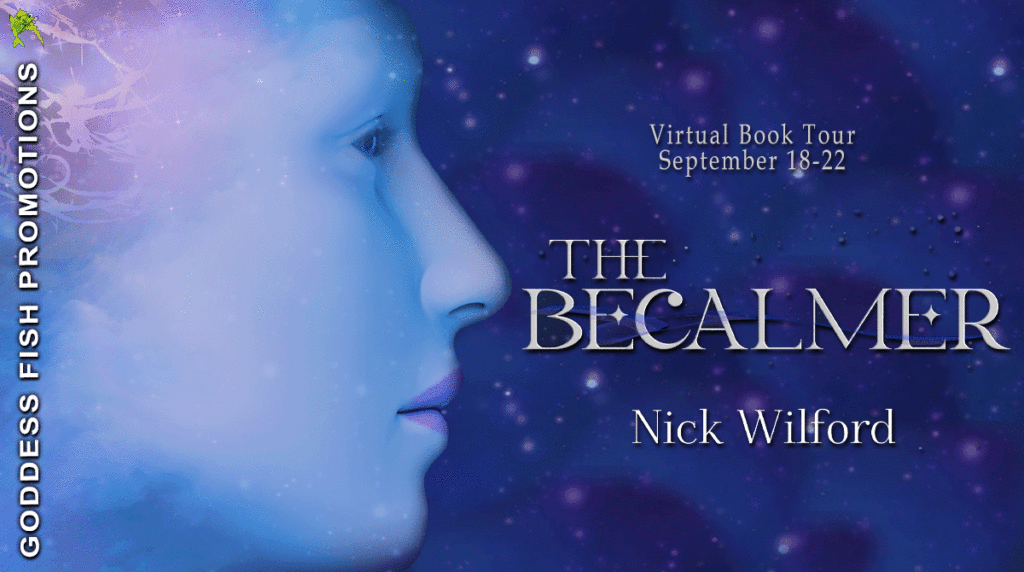This post is part of a virtual book tour organized by Goddess Fish Promotions. Nick Wilford will be awarding a $10 Amazon/BN GC to a randomly drawn winner via rafflecopter during the tour. Click on the tour banner to see the other stops on the tour.
As an author, what scares me the most is running out of ideas. It probably won’t ever happen because I believe there’s an infinite variety of ideas out in the universe, so maybe what I’m more scared of is not doing justice to a great idea. Or, which is perhaps worse, repeating myself with similar themes. In this post I’d like to take the opportunity to share some tips on dealing with these issues for anyone who’s interested in writing, or perhaps you’ve already taken the plunge and have run into such challenges.
One of the hardest things to deal with for any writer is when what appears on the page doesn’t match up with the vision in your head. It’s probably true for any form of art – music, film, painting. You have that initial flash of inspiration and then must spend many months chipping away at the block of marble to try to get to the shape you had in mind. And sometimes, you hit something at the wrong angle and it seems like there’s no way it can be fixed.
One way of dealing with this problem is remembering that the reader is in pretty much every way a lot more important than the writer. Without a reader, your story is just a record to yourself of your own thoughts and inclinations. Is it a piece of art? Certainly, but it hasn’t embarked on its trajectory yet. Once it enters the mind of a reader, then it’s begun its journey. And crucially, the reader doesn’t have the burden of the vision you had before beginning writing. There are no preconceived expectations. The reader is free to take the story and appreciate it any way they like, and they will take their own vision from it. The original one that the author experienced is just space dust at this point. Trust in the story on the page becoming its own entity.
So, you’ve got to reconcile that idea of what comes out on the page not living up to the image in your head, but once you’ve accepted that it should become a lot easier to move forward. There are things that help you chase that vision, of course. It’s always said that a writer should carry pen and paper to capture any ideas that occur, but you should also do the same to write down any developments in your work in progress that come when you’re away from your desk. Or you can record them on your phone and take voice notes. Many writers have a plan that they stick to point by point, or a bulletin board with milestones they must hit in the story. Those are all fine. But the best approach for me is simply to follow where the characters want to go. They might have things in mind that you never thought about, and certainly for me I can’t know their desires, weaknesses and motivations in any depth until I start writing about them. Although you might have started with a grand vision in your head, what the writer wants out of the story ultimately isn’t really relevant. It’s what the characters want that counts. You are merely a conduit.
Harica is gifted with the ability to defuse conflicts using her mind. When she is recruited to assist in resolving a war via an arranged marriage, she discovers that the reluctant bride-to-be has similar powers. Princess Jasmila doesn’t use her powers for good and when Harica arrives to help with the marriage arrangements, she fights back and sends Harica into a coma.
It is through this comatose state that Harica discovers a mysterious liminal space populated by others who share her gift. In this new realm, she learns to do things she never believed possible, but soon things spiral out of control.
In the face of a terrifying and seemingly unstoppable adversary, Harica wrestles with the decision to come to terms with the dark side of her gift.
Will she take ownership of it or turn her back on it forever?
Enjoy an Excerpt
I tried to get a handle on the energy and interplay between the two minds. Jasmila’s was, as I’d expected, much stronger, practically drowning out Narbert’s signals by sheer force, but that didn’t put me off. There would be something I could latch onto, a vulnerable side, even if it was buried deep. Obviously, I would have to concentrate on Jasmila first.
The princess’s complacency was what I was counting on. If she already thought she had me beat, hopefully her guard would be down.
Subtlety wouldn’t be the watchword here. I didn’t want to give her time to sense her own plan hadn’t worked because then she would fight back all the more. I charged like a battering ram but quickly realized this wasn’t going to work. Pulling off something like this was a delicate operation that needed both parties to play along. The “bull in a china shop” approach wasn’t going to cut it. Although there was a bit of give from Jasmila at first, once she rumbled my attack, her mind turned into a brick wall that I bounced off like a tennis ball. I tried to come back for more, attempting a more measured approach, looking for a crack somewhere, even a hairline one, but it was hopeless. It was like trying to tunnel under a mountain with my bare hands. Somewhere in the vicinity I sensed Narbert, bobbing haplessly about, buffeted by the slipstream caused by the battle between me and Jasmila. I couldn’t help him. And we were both caught up in her orbit now, spinning helplessly.
About the Author: 
Nick Wilford is originally from Brighton, England and now lives in a quiet town in Scotland with his wife, three daughters and six rescue dogs. Wanting to make a career from writing, he trained in journalism, but soon realized that the fictional realm was where his true passion lay. He enjoys writing speculative fiction, exploring the things that cannot be seen and “making the impossible reality.” Nick is the author of the Black & White YA dystopian series and has also published a collection of shorter fiction as well as curating, editing and publishing a fundraising anthology featuring a diverse array of talent. By day, he works as a freelance editor, and he also enjoys travelling to inspiring locations with his family, listening to music and helping unwanted dogs find loving homes.
Website | Facebook | Twitter | Newsletter Sign up | Blog
Buy the book at Amazon.
























Thanks for featuring The Becalmer on the blog today as part of the tour! I appreciate it a lot.
Thanks for hosting!
Yes, it’s important to go where your characters take you, even if it’s not the plan you outlined out. Congrats on your new release, Nick!
They have a tendency to take over, especially if impulsive and headstrong. Thanks, Natalie!
Sounds like a great read!
Thanks, Elizabeth!
Hi,
I so agree with your last statements. What the author wants out of a story really doesn‘t count, it is what the characters want. Thus, it is extremely important for the author let his or her characters arise out of the dust, and become real people within theIr hearts while they are writing.
Your excerpt is engaging. I preordered your book, and it is sitting on my iPad. Now, I need to carve out a block of time to read and review it.
All the best on your tour.
Shalom shalom
Hi Pat. Yes, the writer needs to get out of the way, really. Thanks for ordering, and I hope you enjoy it when the time comes. There is always too much to read!
So true that what’s in our head is not what ends up on paper.
Hi Diane. If the writer is on the back foot, trying to keep up with the characters, I think that’s a sign the story is going well.
Great excerpt and giveaway. 🙂
Thanks, Cali!
I really like the cover!
Thank you, Jessica! I love it so much.
The book sounds fantastic. Love the cover.
Thank you!